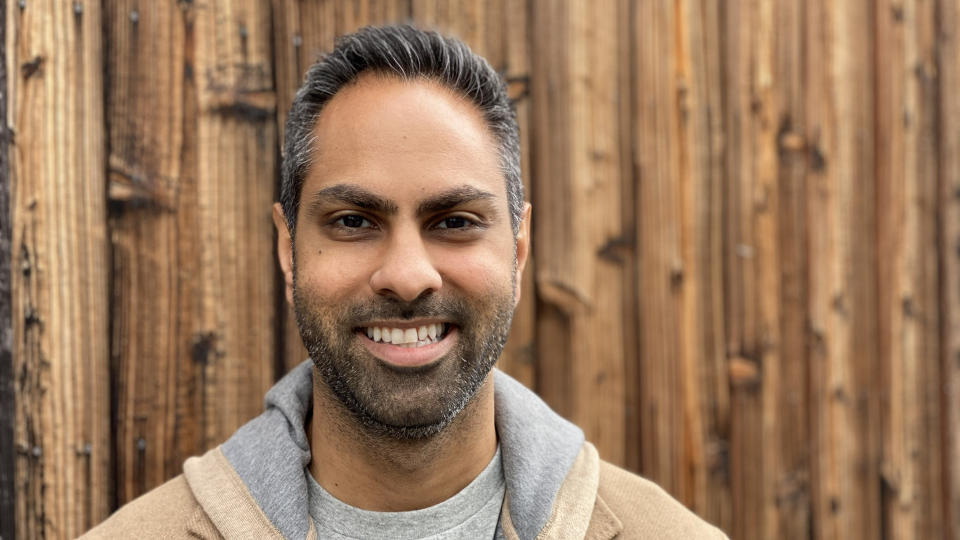Ramit Sethi’s Best Advice for New Grads Looking To Be Multimillionaires

College graduation can feel like a catapult into adulthood. In the blink of an eye and with the toss of a cap, you’re suddenly responsible for your own life and finances.
For You: How To Make Passive Income Just by Moving Money in These Ways
Check Out: 4 Genius Things All Wealthy People Do With Their Money
Whether you have your first “adult” job already or not, your financial future is entirely in your hands. Now is the time to research and listen to the experts — such as self-made millionaire Ramit Sethi, author of the podcast “I Will Teach You To Be Rich.”
In a recent interview with CNBC’s Make It, Sethi explained his top wealth-building strategy.
Wealthy people know the best money secrets. Learn how to copy them.
Start Investing ASAP
Sethi believes that investing is the best way to build wealth, especially when you start young. The longer you invest, the more time you have to benefit from compound interest.
Interest is how you earn money from savings or investment accounts. If you invest $1,000 and get 5% interest, that’s $50 added to your account after one year.
If your account generates compound interest, that $50 goes into your balance. The next time the account calculates interest, it will calculate using the new total of $1,050. You’ll earn $52.50 after another year, which also starts generating interest.
The sooner you start investing, the more compound interest you can earn.
Try This: 8 Ways To Make $200 (or More) a Day Working From Home
Open a Brokerage Account
Your first step is to open a brokerage account. Think of it like a bank account you use to buy and sell investment products, such as stocks, bonds and funds.
You have several types of brokerage accounts to choose from, including:
Managed accounts, where you pay for an expert to select and trade your investments
Discount brokerages, which place trades for you but don’t offer advice or other services
Full-service accounts, which include financial management services, and thus cost more than more bare-bones accounts
Online brokerages, which let you invest directly for a low cost.
The type of investments available will depend on your chosen brokerage firm. Always research the firm’s reputation and available products before opening an account.
Aim for 10% of Your Salary
Sethi’s top tip for generating millions is to invest 10% of your salary. The median salary for a recent college graduate with a bachelor’s degree is $60,000, according to the Federal Reserve. If you earn around that amount, you’d be investing $6,000 a year or $500 a month.
If that sounds doable, great! If not, that’s completely normal. Life can be expensive when you’re on your own for the first time, especially if you have student loans.
According to the Education Data Initiative, college graduates pay an average of $503 monthly on student loans. If you have an apartment with a roommate, add about $1,000 to that amount for rent — though you could pay much more in certain cities. Food and other necessities can bring the total uncomfortably close to your take-home pay.
If you can’t swing 10%, Sethi said, do the best you can. Create a budget and find out how much is available after you’ve paid all your bills, then set a goal for how much to invest. Remember, even small amounts add up with compound interest.
Say you can only afford $50 a month. If you put that money in an account that generates 7% a year, you could end up with more than $120,000 in 40 years. That’s not including any increased deposits if you earn more money in the future.
Explore Index Funds
Sethi recommends starting with low-cost index funds for beginner and lower-ticket investors. Index funds are investment products that gain or lose money based on the movement of a market index, such as the S&P 500. Market indexes measure the performance of a group of securities with crucial economic factors in common.
Index funds invest in some or all securities in their associated indexes. You don’t have to decide which securities to invest in, because the fund will do it for you. Most funds will put more of your money into products with a higher calculated or estimated value, though each fund calculates these numbers differently.
Most index funds have a passive management style, meaning a broker won’t take money from one stock and put it in another as the fund matures. The intent is typically for the fund to be a long-term investment, which is helpful for young and inexperienced investors. All you need to do is choose your fund and ride the waves over time, hoping for increased value.
As you gain more experience with investing — and, hopefully, earn more as an experienced professional — you might decide to move your investments around. But for now, all you need to do is keep investing.
If you open a brokerage account with $500 today and deposit $500 a month, assuming a 7% rate of return, you’ll have $1.2 million in 40 years. That sounds like a bright future.
More From GOBankingRates
This article originally appeared on GOBankingRates.com: Ramit Sethi’s Best Advice for New Grads Looking To Be Multimillionaires

 Yahoo Finance
Yahoo Finance 